Today marks the first National Day for Truth and Reconciliation, a day to honour the survivors and deceased children of Indian residential schools, their families, and communities, and to ensure public commemoration of the history and legacy of residential schools.
The establishment of this national holiday, which was created on June 3 this year, came about earlier this summer in the wake of the rediscovery of thousands of unmarked grave sites of thousands of Indigenous children who died while at residential schools. It is also considered to be a government response to one of the calls to action issued by the Truth and Reconciliation Commission.
The introduction of the federal statutory holiday has been met with mixed reviews. Indigenous and non-Indigenous people alike have been questioning the purpose of the day and whether the intent will be respected and marked with reflection and atonement or whether it will be treated flippantly as a “day off.” Some businesses, organizations, provincial and territorial governments are choosing to observe the day by pausing business and encouraging their employees to attend sessions and ceremonies to learn about and reflect on the history of residential schools and to honour the lives lost, while others are questioning whether there is a need for the statutory holiday at all and questioning reconciliation in its entirety.
Whether you support the first National Day for Truth and Reconciliation or not, one thing is clear: people are talking about reconciliation.
In a recent interview with CBC’s Rosanna Deerchild, Murray Sinclair, who recently retired from the Senate and served as a commissioner and chair of the Truth and Reconciliation Commission, said in response to a question about the importance of the day: “I’ve always believed that we need to take a moment for those who have experienced this, the survivors of residential schools, and those who were lost through residential schools, and that it’s important that we do that, that we take a moment for them, to understand what this country did to them. And, to acknowledge that it was wrong, and to commit to not doing it again. Just like they do for veterans who come out of the war. That it’s not just about marching and dressing up and getting some time off from school and closing stores and getting some time off from work, but it’s about remembering what they have done.”
The recent passage of the National Day for Truth and Reconciliation builds on Every Child Matters Day, also referred to as Orange Shirt Day, an Indigenous-led commemorative day that started in 2013. Since that time, thousands of Canadians have joined the movement, wearing orange on September 30th and attending ceremonies, memorial walks, film screenings, and public lectures organized at the community level across the country in an effort to promote dialogue on the impacts of residential school.
We learned, as a nation, that the road to reconciliation is not only long and winding, it’s also very rough.
Every Child Matters Day is a day of recognition that honours the experience of every child that was forcibly removed from their families and placed in a residential school through the story of six-year old Phyllis Webstad from the Stswecem’c Xgat’tem First Nation, who was brought to St. Joseph Mission Residential School in British Columbia in 1973 wearing her favourite orange shirt. Upon arrival, she was instructed to change into the residential school’s uniform and she never saw her orange shirt again.
The past year has been difficult and uncomfortable, for Indigenous and non-Indigenous people alike. We learned, as a nation, that the road to reconciliation is not only long and winding, it’s also very rough, especially when it disrupts life-long positive assumptions and understandings of the role of church and state as the moral and ethical conscience.
Canadians watched with mixed emotion while media shed light into the recovery of the bodies of hundreds of children who died while forcibly attending residential schools. The survivors and families of the deceased children, demonstrating the highest degree of courage, once again opened the door to their communities allowing Canadians to see for themselves the dark realities and complex grief that they have been living with for decades. They did so knowing these truths are Canada’s pathway to reconciliation.
Writer Jesse Wente lays it out best in his book Unreconciled: Family, Truth, and Indigenous Resistance published recently: “If we ever hope to see a functional relationship between this country and its First Nations people, it has to grow from honesty and understanding — the basis cannot be a lie. Laying that foundation will require Canada to face up to what it is, what it has always been. It will require this country to listen to the stories that Indigenous people have been telling for more than 150 years. It will require truth.”
Recommended for You
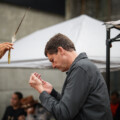
The B.C. government is making reconciliation harder than it needs to be
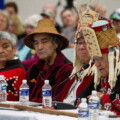
The myth of unified Indigenous opposition to a West Coast pipeline
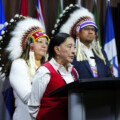
‘All they see is risks’: John Desjarlais on the new rules of engagement with First Nations over pipelines

How political timing influenced the confusing pipeline MOU

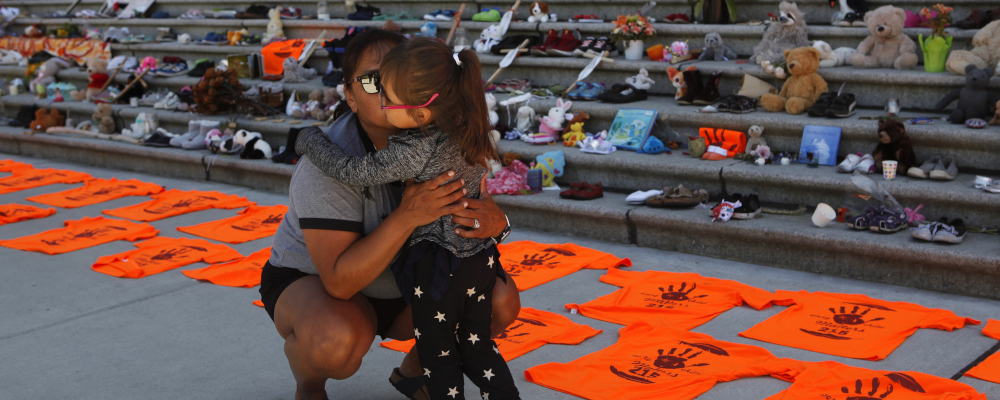

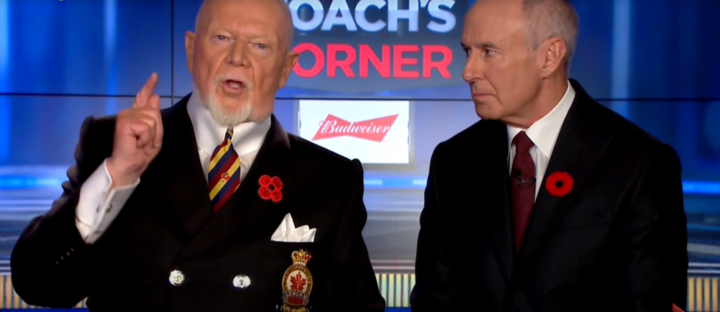

Comments (0)